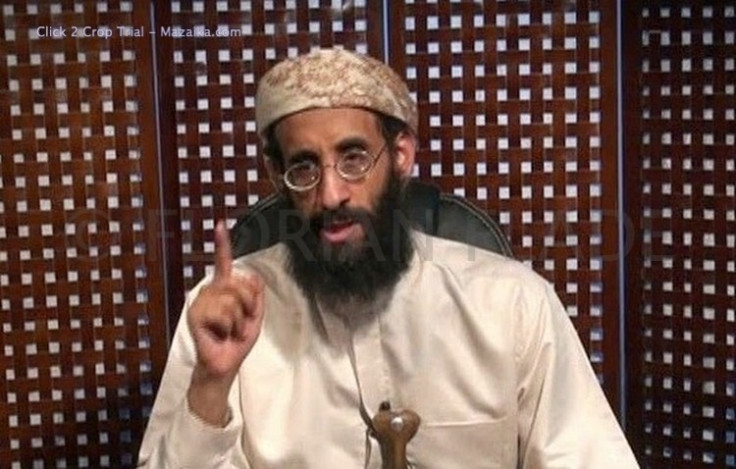Al-Awlaki’s killing: Obama’s Proof he is Better at Fighting the War Against Terror than Bush?

As high profile Al-Qaeda leader Awlaki was killed in a strike on his convoy directed by the CIA and carried out with the U.S. Joint Special Operations Command's firepower, Obama it seems wants to prove he is in control when it comes to the war against terror, leaving little room for the republicans to attack him on the subject during the next presidential campaign.
The Yemen Defence Ministry also announced a second American militant, Samir Khan, who produced 'Inspire', an English-language al-Qaeda Web magazine, died in the same strike.
Awlaki, who was suspected with inspired the actions of Army psychiatrist Maj. Nidal Hasan, who was accused of conducting the mass shooting at Fort Hood Army base in Texas in 2009 and in planning the attempted Christmas bombing of a Detroit-bound jetliner was wanted by both the U.S. and Yemeni authorities.
Al-Awlaki is also believed to have been involved in mail bombs addressed to Chicago-area synagogues but were intercepted in Dubai and Europe in October 2010.
He had been put on the CIA 'hit list' and in 2010 a Yemeni judge ordered police to capture him "dead or alive."
The Yemeni government also reported that Awlaki had been killed Friday about five miles from the town of Khashef, some 87 miles from the capital Sanaa, in an airstrike which was, according to U.S. official not as secret as the Navy SEALs raid that led to the death of bin Laden.
Analyst have pointed out Awlaki's death will be another harsh blow to Al-Qaeda and will limit the network ability to recruit, inspire and even raise funds
However, defending Awlaki, the mosque's outreach director, Imam Johari Abdul-Malik, told the press mosque members never saw al-Awlaki espousing radical ideology while he was there before adding he believed Awlaki's views changed after he left the US.
While counterterrorism cooperation between the U.S. and Pakistan has recently taken a turn for the worst, in recent weeks U.S. and Yemeni intelligences services have increased their file sharing and intelligence-gathering US officials said.
The killing of the 39-year old cleric was welcomed by many U.S. politicians, praising both the people directly involved in the mission and the President.
Rep. Peter King, R-N.Y., chairman of the House Homeland Security Committee said "The killing of Anwar al-Awlaki is a great success in our fight against al-Qaeda and its affiliates. For the past several years, al-Awlaki has been more dangerous even than Usama bin Laden had been. The killing of al-Awlaki is a tremendous tribute to President Obama and the men and women of our intelligence community."
Former Defence Secretary Donald Rumsfeld took to twitter to welcome the news, writing "The world is safer with Anwar al-Awlaki dead. Pressure on Al Qaeda needs to be kept up."
Despite Obama often talking about the need to focus on international justice and human rights, most of the recent operations launched it seems were directly aimed at killing rather than capturing the militants, leading detractors to point out, the President's administration tactics have more focused on killing terrorists than that of George W Bush.
"Let's put aside the schoolyard taunts about who is tough," President Obama even said in 2010, before adding later on "In the last year, hundreds of Al Qaeda's fighters and affiliates, including many senior leaders, have been captured or killed - far more than in 2008. "
The President's propos were also backed by U.S. officials who told the press in 2010 that in 2009, the Obama administration killed more senior al-Qaida leaders in drone attacks in the border region between Pakistan and Afghanistan than the Bush administration did in the three years prior.
While the number of high profile killings have been criticised by certain right groups, in 2010, Viet Dinh a prominent lawyer from the Bush administration's Department of Justice Georgetown University Law Centre, also said he was concerned that the higher number of terrorist executions taking place under Obama was compromising U.S. intelligence operations.
"Why have executions increased?" asked Viet Dinh, also one of the authors of the USA Patriot Act, before adding that "the president and vice president expound this fact as a fact that they are actually successful in war."
"That doesn't mean I think they are not illegitimate," he added. "No, we have every right to kill the other side's warriors. But at what cost? When we do not have an effective detention policy the only option we have is to kill them before we can detain them. And if we don't detain them, we don't know what they know and what they are up to."
Clearly Obama's so called success against the war on terror is raising question as the direct order to kill is being brandished as the main 'thermometer for success ' in evaluating the progresses made against the war on terror.
Failures in Iraq and Afghanistan, two countries still suffering from high level of violent insurgencies targeted by al-Qaeda affiliated groups are however often brushed aside.
Moreover, the killing of Awlaki, also raises questions since he is a US citizen, who had not been charged with any crime, leading civil liberties groups to question the U.S. government's authority to kill an American without trial.
All in all however it seems that with this new victory in hand Obama knows the war on terror is one area his republican opponents will not be able to attack him on.
© Copyright IBTimes 2024. All rights reserved.





